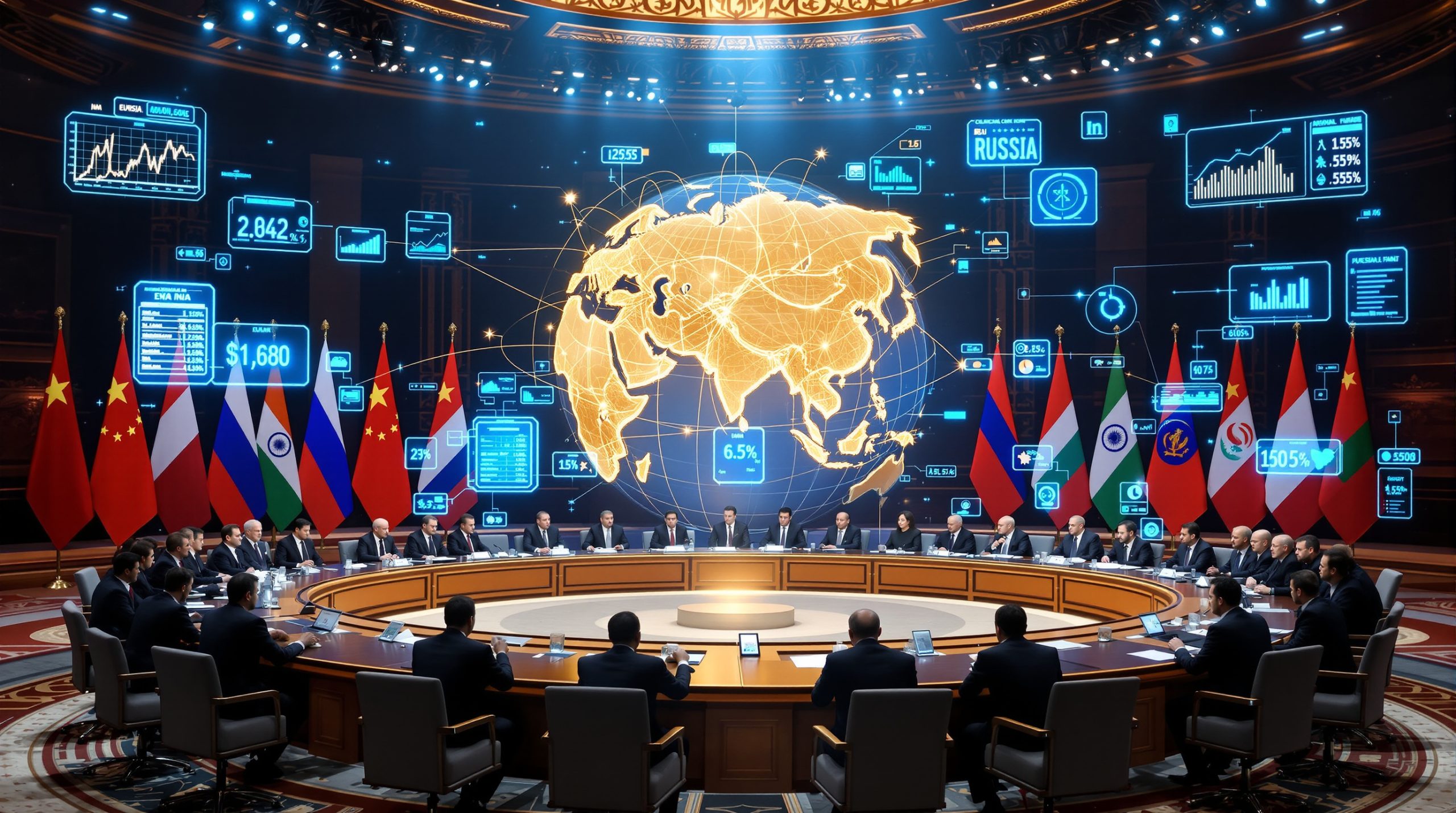What is the Saudi-South African Joint Committee?
The Saudi-South African Joint Committee serves as a formal diplomatic platform established to foster bilateral cooperation between the Kingdom of Saudi Arabia and the Republic of South Africa. This institutional framework enables regular high-level engagement between the two nations, focusing on developing strategic partnerships across multiple sectors including trade, investment, energy, mining, and infrastructure development.
Since its inception, the committee has played a pivotal role in strengthening diplomatic and economic ties between these two regional powerhouses, providing a structured environment for officials to discuss mutual interests and resolve challenges affecting bilateral relations.
Historical Development of the Committee
The committee emerged from both nations' recognition of mutual strategic importance and complementary economic strengths. What began as preliminary diplomatic exchanges has evolved into a comprehensive partnership mechanism addressing cooperation in diverse fields from mineral resources to healthcare and technology transfer.
The formation of the committee represented a significant milestone in South-South cooperation, establishing formal channels for dialogue during a period when both countries were undergoing significant political transitions. For Saudi Arabia, this partnership aligned with early diversification efforts, while South Africa was navigating its post-apartheid economic reorientation.
Over time, the committee has adapted its focus to address emerging priorities including renewable energy, digital transformation, and sustainable development, reflecting the evolving economic landscapes of both nations.
Governance Structure and Operation
The committee operates through regular ministerial-level sessions, typically co-chaired by senior cabinet members from both countries. Technical working groups maintain continuity between formal sessions, addressing specific cooperation areas and monitoring implementation of agreements.
The committee's operational framework typically involves:
- Plenary sessions where broader strategic directions are established
- Sectoral working groups focusing on specific industries or cooperation areas
- Implementation committees tracking progress on signed agreements
- Business forums bringing together private sector stakeholders
This multi-tiered approach ensures both high-level political commitment and practical implementation mechanisms that survive changes in government administrations.
How Does the 10th Session Mark a Milestone in Bilateral Relations?
The 10th session of the Saudi-South African Joint Committee, held in Riyadh, represented a significant advancement in bilateral relations. The meeting occurred at a crucial juncture when both countries are pursuing ambitious economic transformation agendas – Saudi Arabia through Vision 2030 and South Africa through various economic recovery initiatives.
This session built upon previous diplomatic momentum established during state visits between the countries' leaders and came at a time when both nations are seeking to diversify their international partnerships beyond traditional allies.
Key Outcomes from the Riyadh Meeting
The meeting produced concrete agreements to enhance cooperation across multiple sectors, with particular emphasis on:
- Expanding trade and investment flows through reduced barriers and simplified procedures
- Developing partnerships in energy and mining with focus on critical minerals transition
- Accelerating infrastructure development projects through public-private partnerships
- Enhancing agricultural technology and food security initiatives
- Strengthening healthcare collaboration including medical training exchanges
- Improving environmental protection frameworks and sustainability practices
- Optimizing logistics management systems to support increased trade volumes
The session also established specific working mechanisms to translate high-level agreements into actionable projects with dedicated implementation timelines and monitoring frameworks.
High-Level Participation and Representation
The session featured unprecedented high-level participation, demonstrating the strategic importance both nations place on their bilateral relationship:
- Saudi delegation: Led by Minister of Industry and Mineral Resources Bandar bin Ibrahim Alkhorayef
- South African delegation: Headed by Minister of Trade, Industry and Competition Parks Tau
- Comprehensive representation from key ministries and agencies of both countries
This high-level representation underscores the political commitment to strengthening the partnership and provides the necessary authority to implement substantial agreements reached during the session.
What Are the Economic Dimensions of the Saudi-South African Partnership?
The economic relationship between Saudi Arabia and South Africa shows significant growth potential as both countries seek to diversify their economies and strengthen South-South trade connections. Their complementary economic structures – with Saudi Arabia's financial resources and energy expertise aligning with South Africa's mineral wealth and manufacturing capabilities – create natural partnership opportunities.
Current Trade and Investment Landscape
Recent economic indicators highlight both the current state and future potential of bilateral economic relations:
| Economic Indicator | Value | Trend |
|---|---|---|
| Saudi non-oil exports to South Africa | Growing steadily | Increasing |
| Total bilateral trade | Expanding annually | Positive growth trajectory |
| Key Saudi export sectors | Petrochemicals, minerals, manufactured goods | Diversifying beyond oil |
| South African exports to Saudi Arabia | Agricultural products, minerals, machinery | Expanding range |
| Investment projects | Growing number of cross-border initiatives | Increasing sophistication |
While these figures represent meaningful progress, analysts note that trade volumes remain well below potential given the size of both economies, suggesting significant room for growth through targeted policy interventions and business facilitation.
Priority Sectors for Economic Cooperation
The committee has identified several high-potential sectors for expanded economic partnership:
Automotive Industry: South Africa's established automotive manufacturing sector presents opportunities for technical partnerships and Saudi investment, particularly as the Kingdom seeks to develop its own automotive industry under Vision 2030.
Mining and Minerals: Both countries recognize the strategic importance of mineral resources for future economic growth. Potential areas for collaboration include:
- Joint exploration and development of mineral deposits
- Technology sharing for more efficient extraction methods
- Processing facilities to add value to raw materials
- Training and skills development in mining operations
Renewable Energy: As both countries pursue energy transitions, collaboration opportunities exist in:
- Solar power development utilizing Saudi expertise and investment capital
- Wind energy projects in South Africa's coastal regions
- Green hydrogen initiatives leveraging complementary capabilities
- Energy storage solutions to enhance grid stability
Agriculture and Food Security: Agricultural cooperation focuses on:
- Technology transfer to improve crop yields and water efficiency
- Investment in agricultural production and processing facilities
- Research collaboration on drought-resistant crops
- Cold chain development for perishable goods trade
Healthcare and Pharmaceuticals: The health sector offers partnership potential through:
- Medical services exchange programs
- Pharmaceutical manufacturing joint ventures
- Health infrastructure development
- Medical tourism initiatives
What Role Does the Business Council Play in Bilateral Relations?
While government-to-government frameworks establish the foundation for bilateral cooperation, the private sector plays a crucial role in implementing commercial partnerships. The Saudi-South African Business Council serves as the primary mechanism for facilitating these business connections.
Structure and Function of the Saudi-South African Business Council
The Business Council operates as a permanent platform facilitating private sector engagement between the two countries. Typically comprising senior business leaders from various industries, the council maintains close coordination with government entities while operating with the flexibility needed for commercial relationship development.
Its primary functions include:
- Organizing regular business forums and matchmaking events to connect potential partners
- Identifying specific investment opportunities aligned with national development priorities
- Addressing market access challenges through dialogue with regulatory authorities
- Providing advisory services to companies seeking to enter either market
- Advocating for policy improvements to enhance bilateral trade and investment flows
The council's effectiveness stems from its ability to translate high-level diplomatic agreements into practical business opportunities that generate economic value for both countries.
Recent Business Council Initiatives
The council has spearheaded several initiatives to strengthen commercial ties:
- Business Forums: Regular meetings bringing together business leaders, investors, and project developers to explore partnership opportunities in priority sectors
- Trade Missions: Organized delegations focusing on specific industries like mining, renewable energy, and agricultural technology
- Problem-Solving Mechanisms: Working groups addressing practical challenges faced by businesses operating across borders
- Information Sharing: Market intelligence reports on sector-specific opportunities and regulatory requirements
- Digital Platforms: Online resources connecting businesses from both countries outside of formal events
These initiatives create sustained momentum for commercial partnerships that complement formal diplomatic relations and translate policy frameworks into tangible economic activity.
How Are Investment Flows Developing Between the Two Nations?
Investment relationships between Saudi Arabia and South Africa are evolving as both countries implement policies to attract foreign capital and diversify their economies. While trade connections have traditionally dominated the relationship, cross-border investments represent a growing dimension of economic cooperation.
South African Investments in Saudi Arabia
South Africa has begun establishing investment presence in the Kingdom, with notable projects including:
- A medical and pharmaceutical facility in Jazan with a 50-year operational timeline
- Services sector investments leveraging South African expertise in mining technology and financial services
- Exploration of opportunities in Saudi Arabia's growing tourism sector
- Construction and engineering services supporting Saudi infrastructure development
These investments reflect South African companies' recognition of Saudi Arabia's economic transformation and the opportunities created by Vision 2030 initiatives across multiple sectors.
Saudi Investments in South Africa
Saudi entities have made strategic investments in South Africa, particularly:
- ACWA Power's significant investments in renewable energy projects, leveraging South Africa's Renewable Energy Independent Power Producer Procurement Programme
- Interest in mining industry evolution and mineral processing operations that align with Saudi industrial development goals
- Infrastructure development partnerships, especially in logistics and transportation
- Agricultural investments focusing on food security and export-oriented production
Saudi investors view South Africa as both a significant market in its own right and a potential gateway to broader regional opportunities across Southern Africa, making it an attractive destination for strategic capital deployment.
What Specialized Cooperation Areas Are Being Developed?
Beyond traditional trade and investment, the Saudi-South African relationship encompasses specialized cooperation areas that leverage each country's unique capabilities and address shared challenges.
Knowledge Exchange and Human Capital Development
The committee has prioritized knowledge transfer initiatives, including:
- Professional Exchanges: Recruitment programs for South African medical professionals to work in Saudi healthcare facilities, providing valuable expertise while addressing employment opportunities
- Technical Training: Specialized programs in mining, energy, and manufacturing sectors to transfer skills and technologies
- Educational Partnerships: Collaboration between universities and research institutions on joint research programs and student exchanges
- Skills Development: Targeted initiatives aligned with economic diversification goals in both countries
These human capital initiatives create sustainable long-term value by developing the capabilities needed to support economic growth in priority sectors.
Transportation and Logistics Partnerships
A key focus area involves developing integrated transportation networks to facilitate increased trade and economic integration:
- Maritime Transport: Agreements to enhance shipping connections between Saudi and South African ports, reducing logistics costs and transit times
- Air Transport: Expanded passenger and cargo capacity through additional flight routes and frequency
- Logistics Optimization: Shared technologies and systems to improve supply chain efficiency
- Customs Facilitation: Streamlined procedures to reduce administrative barriers to trade
These transportation improvements address a critical constraint to increased bilateral trade by making physical movement of goods more efficient and cost-effective.
What Are the Future Directions for the Committee?
As the Saudi-South African Joint Committee continues to evolve, it is establishing ambitious goals to deepen cooperation and address emerging priorities in the bilateral relationship.
Upcoming Initiatives and Agreements
The committee has outlined several priority initiatives for the near future:
- Comprehensive Economic Partnership: Developing a framework agreement to systematically reduce trade barriers and enhance investment protections
- Joint Investment Funds: Establishing co-financed vehicles to support projects in priority sectors
- Technical Working Groups: Forming specialized teams focused on emerging technologies like artificial intelligence, blockchain, and clean energy
- Policy Coordination: Creating mechanisms for regular alignment on international economic forums
These initiatives aim to move beyond traditional cooperation models toward more integrated economic partnership with institutionalized frameworks for collaboration.
The 11th Session and Implementation Monitoring
The upcoming 11th session, scheduled to be hosted in South Africa, will focus on:
- Implementation Review: Assessing progress on commitments made during the 10th session
- Barrier Removal: Identifying and addressing obstacles to increased economic cooperation
- New Cooperation Areas: Expanding collaboration into emerging sectors like digital economy and green technologies
- Target Setting: Establishing concrete metrics for trade and investment growth
This forward-looking agenda reflects both countries' commitment to continuous improvement in their bilateral relationship and adaptation to changing global economic conditions.
How Does the Committee Address Regional and Global Challenges?
The Saudi-South African relationship extends beyond purely bilateral matters to encompass coordination on regional and international issues of mutual concern.
Coordinating Positions on International Issues
The committee serves as a platform for aligning approaches to regional and global challenges:
- Multilateral Forums: Discussing positions on international organizations like the G20 (where both countries are members), United Nations, and World Trade Organization
- Regional Security: Exchanging perspectives on stability and security issues affecting the Middle East and Africa
- Economic Governance: Coordinating approaches to global economic frameworks and trade architecture
- Sustainable Development: Aligning on climate change responses and implementation of the UN Sustainable Development Goals
This diplomatic coordination helps both countries amplify their international influence through consistent messaging and mutual support in global forums.
Building South-South Cooperation Models
The Saudi-South African partnership represents an important model of South-South cooperation:
- Alternative Development Paradigms: Demonstrating cooperation frameworks not dependent on traditional North-South assistance models
- Technical Cooperation: Creating templates for knowledge and technology exchange between developing economies
- Institutional Development: Building government and private sector capacity for international engagement
- Regional Integration: Supporting broader economic connectivity within respective regions
These cooperation models provide valuable examples for other developing nations seeking to strengthen South-South partnerships as complements to traditional international relationships.
What Factors Will Influence the Partnership's Future Success?
While the Saudi-South African relationship has demonstrated positive momentum, several factors will determine its long-term impact and sustainability.
Critical Success Factors
Several key elements will determine the long-term impact of the Saudi-South African Joint Committee:
- Political Commitment: Sustained high-level engagement from leadership in both countries regardless of administration changes
- Implementation Capacity: Effective bureaucratic mechanisms to translate agreements into concrete actions
- Private Sector Engagement: Active business participation to commercialize cooperation opportunities
- Strategic Alignment: Harmony between bilateral initiatives and national development strategies in both countries
- Global Economic Conditions: Adaptability to international trade patterns and economic cycles
The committee's ability to address these factors will significantly influence whether diplomatic agreements translate into tangible economic and social benefits.
Measuring Impact and Effectiveness
The committee's success will ultimately be judged by concrete outcomes:
- Trade Growth: Quantitative increases in bilateral trade volumes and diversification of traded products
- Investment Expansion: Increased cross-border capital flows and successful project implementations
- Project Completion: Tangible results from joint initiatives in priority sectors
- Public Benefit: Improvements in economic opportunity and living standards for citizens
- International Position: Enhanced global competitiveness and influence for both countries
Establishing clear metrics and regular evaluation processes will be essential for maintaining momentum and demonstrating the partnership's value to stakeholders in both countries.
Conclusion: The Strategic Significance of Saudi-South African Cooperation
The Saudi-South African Joint Committee represents more than a typical bilateral relationship – it embodies a strategic partnership between two regional leaders seeking to navigate complex global economic transitions. By combining Saudi Arabia's financial resources and energy expertise with South Africa mineral beneficiation capabilities, the partnership creates complementary strengths greater than the sum of their parts.
As both countries implement ambitious economic transformation agendas, their cooperation provides valuable support for diversification initiatives and creates new opportunities for businesses and citizens. The committee's evolution over time demonstrates the potential for sustained South-South cooperation to address development challenges through mutual benefit rather than traditional assistance models.
The future trajectory of this relationship will depend on the partners' ability to maintain political commitment, implement effective cooperation mechanisms, and adapt to changing global conditions. With continued focus on tangible outcomes and strategic alignment, the Saudi-South African partnership has potential to become a model for effective South-South cooperation in the 21st century, particularly as both nations pursue gold investment strategies and economic diversification through programs like Saudi exploration licenses.
Are You Interested in Exploring Mining Investment Opportunities?
Discover how to stay ahead of the market with instant notifications on significant ASX mineral discoveries through Discovery Alert's proprietary Discovery IQ model, which transforms complex data into actionable insights for both short-term traders and long-term investors. Explore why historic discoveries can generate substantial returns by visiting the Discovery Alert dedicated discoveries page.




